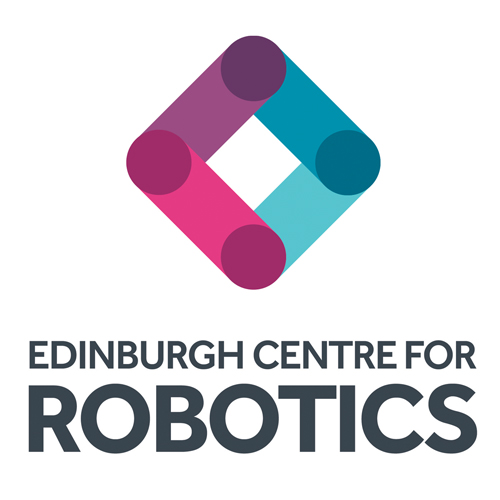Dr Èric Pairet Artau
Path planning is the challenge of computing trajectories that let robots move safely from a start to a goal configuration. Traditional path planning approaches rely on entirely exploratory or inherently rigid and brittle computational techniques. As a result, finding a solution implies long computation times or tailoring the underlying planner to the needs of each application. In contrast, humans are capable of efficiently and safely trace plans in a wide range of environments and conditions, even when those are entirely novel. This performance is associated with the ability to exploit a vast repertoire of prior experiences to create any complex behaviour, and the capabilities to continually learn from experiences and consequently adjust the underlying behavioural decision-making process. Hence, an ideal robotic system should be able to resemble this strategy of leveraging a set of prior experiences to define its underlying behaviour without the need of explicitly tailoring the planning approach nor exhaustively exploring the potentially infinite behavioural space. My research explores strategies to leverage of abstractions for path planning. Abstractions, such as solutions in similar problems, can help to solve new problems faster than planning from scratch. Such an approach raises multiple questions, such as "what is a suitable abstraction for a particular problem?", "how do we compute or acquire abstractions?", "how do we leverage from the information in the abstractions?", "how do we deal with multiple abstractions when these are available?". My research during the PhD has been addressing some of these questions at a theoretical level and applying the findings across multiple robotic platforms. A list of publications is provided below.
- È. Pairet, C. Chamzas, Y. Petillot, and L. Kavraki. “Path Planning for Manipulation using Experience-driven Random Trees”, in IEEE Robotics and Automation Letters. Under Review.
- P. Ardón, M. Cabrera, È. Pairet, R. Petrick, S. Ramamoorthy, K. Lohan, Maya Cakmak. "Affordance-aware Handovers with Human Arm Mobility Constraints", in IEEE Robotics and Automation Letters. Under review.
- È. Pairet, J. D. Hernández, M. Carreras, Y. Petillot, and M. Lahijanian. “Online Mapping and Motion Planning under Uncertainty for Safe Navigation in Unknown Environments”.
- P. Ardón, È. Pairet, K. Lohan, S. Ramamoorthy, and R. Petrick. “Affordances in Robotic Tasks - A Survey”, in IEEE Transaction on Robotics (T-RO). Under review.
- P. Ardón*, È. Pairet*, R. Petrick, S. Ramamoorthy, and K. S. Lohan. ”Self-assessment of Grasp Affordance Transfer”, in IEEE/RSJ Intl. Conf. on Intelligent Robots and Systems (IROS20). *Authors contributed equally to this work.
- Y. Carreno, È. Pairet, Y. Petillot, and R. Petrick. "A Decentralised Strategy for Heterogeneous AUV Missions via Goal Distribution and Temporal Planning", in Intl. Conf. on Automated Planning and Scheduling. October 2020.
- Y. Carreno, È. Pairet, Y. Petillot, and R. Petrick. "Decentralised Task Allocation and Planning for Heterogeneous AUVs", in Intl. Conf. on Automated Planning and Scheduling System Demonstration. October 2020.
- Y. Carreno, È. Pairet, P. Ardón, Y. Petillot, and R. Petrick. "Task Allocation and Planning for Offshore Mission Automation", in Intl. Conf. on Automated Planning and Scheduling System Demonstration. October 2020.
- K. S. Lohan, M. I. Ahmad, C. Dondrup, P. Ardón, È. Pairet, and A. Vinciarelli. “Adapting Movements and Behaviour to Favour Communication in Human-Robot Interaction” in Modelling Human Motion: from Human Perception to Robot Design. Springer. In Press.
- Y. Carreno, È. Pairet, Y. Petillot, and R. Petrick. “Task Allocation Strategy for Heterogeneous Robot Teams in Offshore Missions”, in Intl. Conf. on Autonomous Agents and Multiagent Systems (AAMAS20). May 2020.
- D. Robb, M. Ahmad, C. Tiseo, S. Aracri, A. C. McConnell, V. Page, C. Dondrup, F. Garcia, H. Nguyen, È. Pairet, P. Ardón, T. Semwal, H. Taylor, L. Wilson, D. Lane, H. Hastie, and K. Lohan. “Robots in the Danger Zone: Exploring Public Perception through Engagement”, in ACM/IEEE Intl. Conf. on Human-Robot Interaction (HRI20). March 2020.
- È. Pairet, P. Ardón, M. Mistry, and Y. Petillot. “Learning Generalisable Coupling Terms for Obstacle Avoidance via Low-dimensional Geometric Descriptors”, in IEEE Robotics and Automation Letters (RA-L) and IEEE/RSJ Intl. Conf. on Intelligent Robots and Systems (IROS19). October 2019.
- P. Ardón, È. Pairet, R. Petrick, S. Ramamoorthy, and K. S. Lohan. ”Learning Grasp Affordance Reasoning through Semantic Relations”, in IEEE Robotics and Automation Letters (RA-L) and IEEE/RSJ Intl. Conf. on Intelligent Robots and Systems (IROS19). October 2019.
- È. Pairet, P. Ardón, M. Mistry, and Y. Petillot. “Learning and Composing Primitive Skills for Dual-arm Manipulation”, in Annual Conference Towards Autonomous Robotic Systems (TAROS19). July 2019. Advanced Robotics at Queen Mary (ARQ) best paper award.
- P. Ardón, È. Pairet, R. Petrick, S. Ramamoorthy, and K. S. Lohan. “Reasoning on Grasp-Action Affordances”, in Annual Conference Towards Autonomous Robotic Systems (TAROS19). July 2019. Best paper award finalist.
- È. Pairet*, P. Ardón*, X. Liu, J. Lopes, H. Hastie, and K. S. Lohan. “A Digital Twin for Human-Robot Interaction”, in ACM/IEEE Intl. Conf. on Human-Robot Interaction (HRI19). March 2019. *Authors contributed equally to this work.
- È. Pairet, P. Ardón, F. Broz, M. Mistry, and Y. Petillot. “Learning and Generalisation of Primitives Skills Towards Robust Dual-arm Manipulation”, in AAAI FSS, Reasoning and Learning in Real-World Systems for Long-Term Autonomy (AAAI-FSS18). October 2018.
- P. Ardón, È. Pairet, S. Ramamoorthy, and K. S. Lohan. “Towards Robust Grasps, Using the Environment Semantics for Robotic Object Affordances”, in AAAI FSS, Reasoning and Learning in Real-World Systems for Long-Term Autonomy (AAAI-FSS18). October 2018.
- È. Pairet, J. D. Hernández, M. Lahijanian, and M. Carreras. “Uncertainty-based Online Mapping and Motion Planning for Marine Robotics Guidance”, in IEEE/RSJ Intl. Conf. on Intelligent Robots and Systems (IROS18). October 2018.


